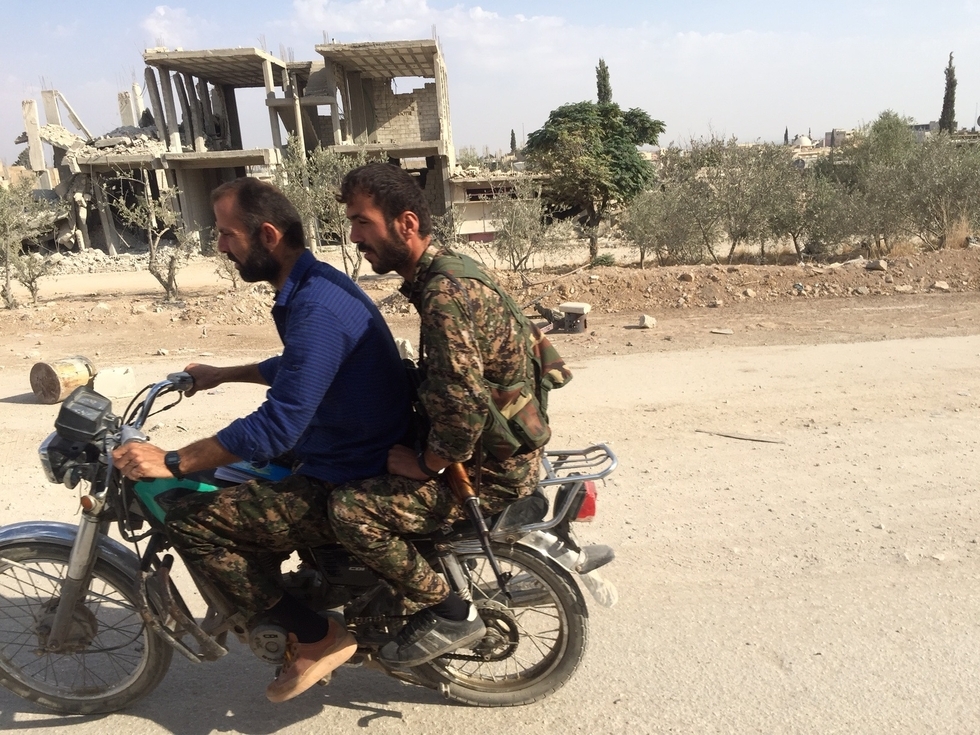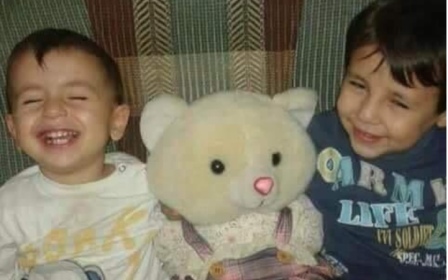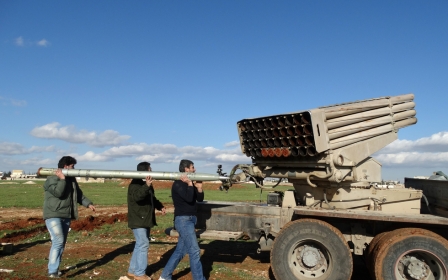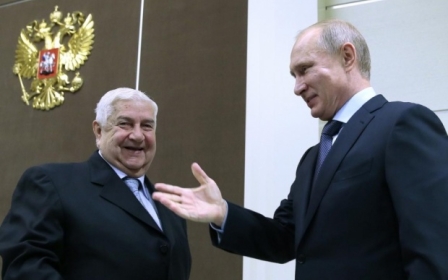Aid not reaching Kobane, despite outrage over Alan Kurdi’s death

KOBANE, Syria - Alan Kurdi, the Syrian Kurdish toddler whose drowned body, face down on a Turkish beach, galvanised a wave of sympathy for Syrian refugees earlier this month, now rests beneath a grey slab of marble beside three disused cooking-oil tins where small evergreen trees have been planted.
No names have been carved on the grave nor is there any other indication that here lies the remains of a child whose death changed so much.
Across Europe news editors who for months had shown indifference or outright hostility to people escaping the Syrian catastrophe were suddenly struck by a single image of a child who was beyond help.
Alan’s brother and mother also drowned when their boat sank in pre-dawn darkness on 2 September. Abdullah Kurdi, the boy’s father, survived and brought the bodies back to their home town of Kobane, their plans for a fresh life in Europe cruelly destroyed.
The family’s three unmarked graves form a new row in an expanding cemetery of victims of the four-year-old Syrian civil war. The “martyrs” cemetery for the hundreds of Kurdish soldiers who have been killed in battle against the Islamic State group is nearby.
Though the fact went unmentioned in most Western news reports, Alan was a Kurd, and Kurds have historically had problems with Turkey, whether they live in Turkey itself or in Syria. To transport his wife and two sons’ bodies to Kobane, Abdullah Kurdi obtained special permission to have the frontier with Turkey opened. Kobane is situated just inside the Syrian border.
It was not a privilege accorded to the scores of foreign journalists who accompanied Kurdi from the beach in Bodrum. Along with all other foreign nationals who wish to visit the town, they were barred. The only access to Kobane is from the Syrian Kurdish side, requiring a 250-mile journey on poor roads from northern Iraq.
Turkey’s obstruction is having a damaging impact on Kobane’s efforts to revive, after having been the focus of a fierce four-month battle between Kurdish fighters and IS militants beginning in September last year. The Kurds were backed with a wave of US airstrikes in that fight, which ultimately ended with IS pushed back, but left Kobane mostly raised to the ground.
Turkey is happy to see refugees leave their territory, so the border gates are open twice a week to let the thousands who fled Kobane return. But no aid workers are allowed to cross, nor any equipment for re-building the town.
“The most urgent need is for machinery to clear the destruction,” Abdul Rahman Hamo, Kobane’s general coordinator for rehabilitation told MEE. “We have moved 60,000 tons of rubble to a site on the edge of town. But only 40 percent of the clearing has been done.”
Alan Kurdi’s mother took the children to Turkey when IS fighters attacked Kobane last September. Battles raged until January with artillery shelling and mortar attacks by both sides.
Unexploded bombs and booby-traps
US airstrikes crushed hundreds of buildings. Although it is eight months since IS fighters were driven out of the town, one of the biggest problems for returning refugees is the danger of unexploded bombs, as well as booby-traps hidden in houses by IS fighters before they retreated.
Kobane has been offered help from foreign mine-clearing non-governmental organisations. Handicap International holds mine-awareness classes in the town to explain to people how to spot signs of danger. It also trains Syrian Kurdish de-miners but Turkey denies permission for the organisation to import their specialist equipment to defuse unexploded bombs.
Nor is de-mining equipment allowed into Kobane by the Kurdish Regional Government in northern Iraq. The KRG is run by centre-right parties who have long had cool relations with the leftwing Democratic Union Party (PYD) which runs the Syrian Kurdish region. The two parties are political rivals.
Forty-six people have been killed by booby-traps and unexploded ordnance in the last two months, according to the town’s rehabilitation coordinator Hamo. Four of the town’s own bomb disposal team have died. The town’s streets have been cleared of bombs but booby-traps and mines still lurk in the canton’s 380 villages.
“Many villages are still empty. There are 150,000 refugees in Turkey but they won’t come home yet. The main reason is fear of mines,” said Hamo.
Turkish embargo
Turkey maintains a general embargo on trade with Rojava, the name given by Kurds to Kurdish majority areas of northern Syria. There is also a ban on humanitarian aid, such as de-mining equipment and medical supplies, despite there being manifest need.
Some Kobane residents resort to smuggling across the border. A teacher explained to MEE how he was planning to crawl through gaps in the border fence in order to pick up Kurdish-language primary school textbooks, brought to the border by Kurdish friends in Turkey.
“I hope I’m not shot for the sake of a pile of books,” he commented.
In the hope of getting the Turkish embargo lifted Hamo, and his colleagues in Kobane’s rehabilitation department, organised a conference for NGOs and European governments’ aid agencies in Brussels in June. Hamo submitted a report outlining the town’s needs, amounting to $3 billion.
The conference was financed by the European Union but the results were disappointing. “Many speakers promised to help Kobane but we had no follow-up with written commitments, and none has delivered any aid,” Hamo told MEE bitterly.
“I wonder whether they used the name Kobane to raise funds. We have seen nothing.”
He understands that governments and NGOs may want to send their own representatives to assess the town’s needs. But if security concerns are holding them back he believes these are unfounded. There have been no IS incursions for three months.
He suspects the real reason for the international failure to aid Kobane is that European governments and NGOs are unwilling to confront Turkey and press for an end to the embargo. The sympathy which Alan Kurdi’s death aroused across Europe does not seem to extend to the surviving refugees who are going back to their home town. Instead, timidity and political calculation are the name of the game.
New MEE newsletter: Jerusalem Dispatch
Sign up to get the latest insights and analysis on Israel-Palestine, alongside Turkey Unpacked and other MEE newsletters
Middle East Eye delivers independent and unrivalled coverage and analysis of the Middle East, North Africa and beyond. To learn more about republishing this content and the associated fees, please fill out this form. More about MEE can be found here.





